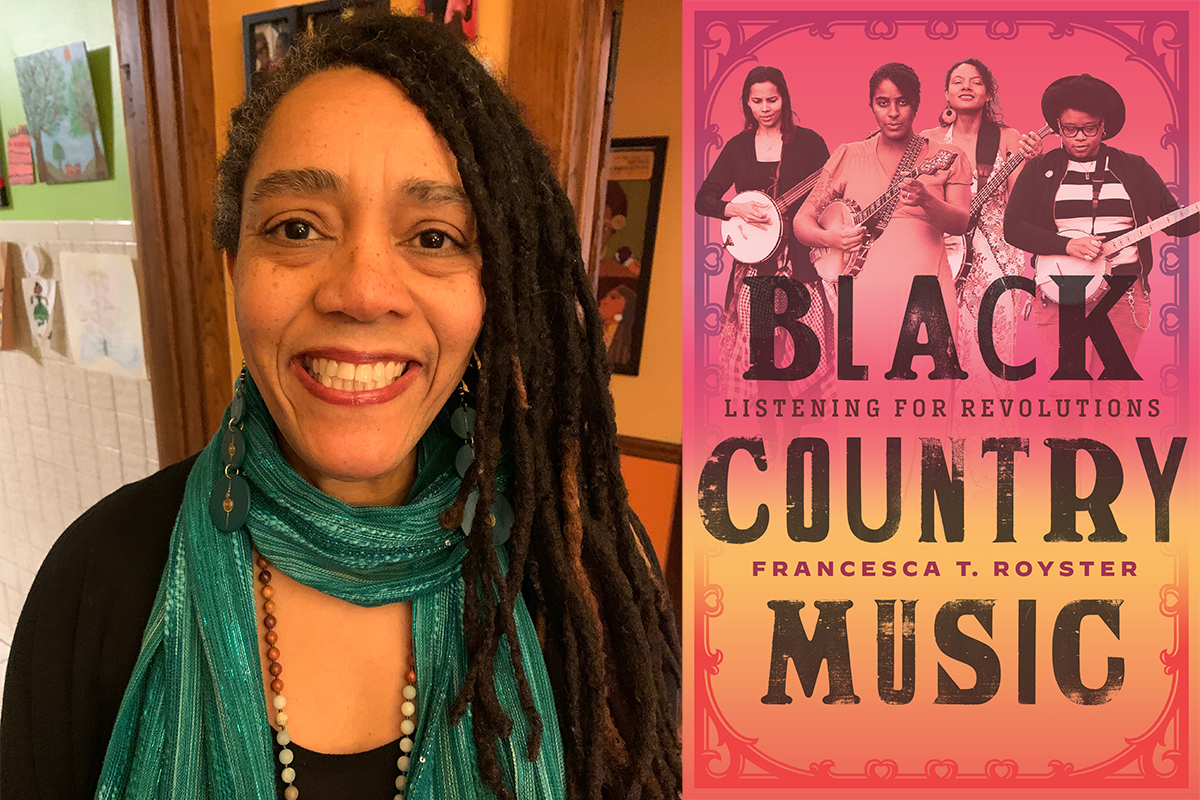 (Photo courtesy of Francesca Royster)
(Photo courtesy of Francesca Royster)Growing up in Nashville, DePaul English professor Francesca Royster enjoyed the country music storytelling of artists like Johnny Cash, Dolly Parton and Kris Kristopherson. A conversation with her father, a session musician in 1970s Nashville who played percussion on albums by Dianne Davidson and Jimmy Buffett, inspired her to dive into the relationship between Black people and country music.
“Country had always felt like a heavily guarded white musical form, and there has been a lot of dismissal and shame for at least some Black listeners when confronted with country,” Royster says.
Now the Rock & Roll Hall of Fame is honoring Royster with a first-place award for her book “
Black Country Music: Listening for Revolutions.” It’s the first book on Black country music by a Black writer and explores country music’s relationship with Black people. In the book, Royster explores Black performers and fans, including herself, and investigates the country roots of musicians like Tina Turner and Lil Nas X. The
2023 Ralph J. Gleason Music Book Award is named for a “highly perceptive critic” whose “words withstand the passage of time.”
“It’s such an honor to be in the company of writers and journalists like Gleason and past recipients of this award who dedicate their work to exploring the powerful role of music to create social change in our everyday lives,” Roster said at the time of the award announcement. “Music can honor our ancestors, challenge outworn narratives of the past, chronicle our struggles and our pleasures, connect to one another’s humanity, and in the process, imagine new futures.”
In the book, Royster describes how country music derives from a creole musical form that draws upon African American, as well as Mexican and other Latinx music, Hawaiian and Native American musical styles and instruments. Royster also found that the banjo, often associated in pop culture as an instrument for white people who live in rural areas, was an African instrument brought here by enslaved people.
“The book sort of came along at the perfect time because there is so much great music being made by Black country music artists right now, like Rissi Palmer, Valerie June, Rhiannon Giddens, Darius Rucker, Mickey Guyton, Alllison Russell, Amythyst Kiah, Britanny Spencer, Leyla McCalla, Lil Nas X and so many others,” Royster says. “In addition, after the murder of George Floyd, country artists like Guyton and Rucker demanded that the industry reckon with country music's history of exclusion, and those movements are still happening.”
For Miles Harvey, a fellow author, professor and chair of DePaul’s English department, Royster’s talent is evident both in her books and in the classroom, where she teaches the next generation of writers.
“Francesca’s range as a writer and thinker is nothing short of stunning,” Harvey says. “Combining cultural criticism and memoir with literary, feminist and queer theory, she brings startlingly unique — and refreshingly playful — perspectives to subjects as diverse as Shakespeare and Stevie Wonder, Elizabeth Taylor and Grace Jones, and Josephine Baker and Lil Nas X. To me, she embodies the best of what DePaul has to offer in the study and practice of the liberal arts — a writer and teacher who daringly crosses the boundaries between traditional areas of study to help us see the world anew.”
Royster hopes readers of “Black Country Music” allow themselves to embrace the genre, while discovering ways to make it their own.
“I hope readers take away that Black artists have been part of this genre from its beginnings, and that Black culture is at the form’s roots,” Royster says. “By looking at the contemporary artists that I profile, I hope that others will see that even though the industry remains fraught and sometimes unwelcoming to artists and fans of color, country music can be a place of freedom, creativity and resilience. Lastly, I hope that for readers and listeners that they feel encouraged to be limitless in the music that they love.”
A virtual event honoring Royster will be hosted by the Rock & Roll Hall of Fame this fall with details forthcoming.
Russell Dorn is a manager of news and integrated content in University Communications.